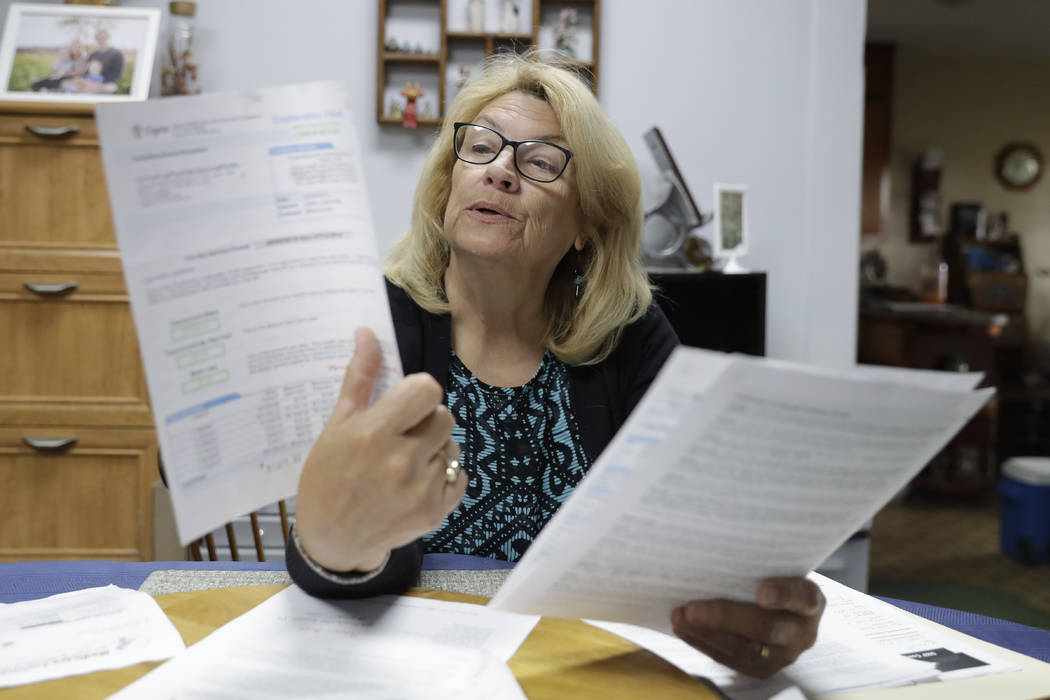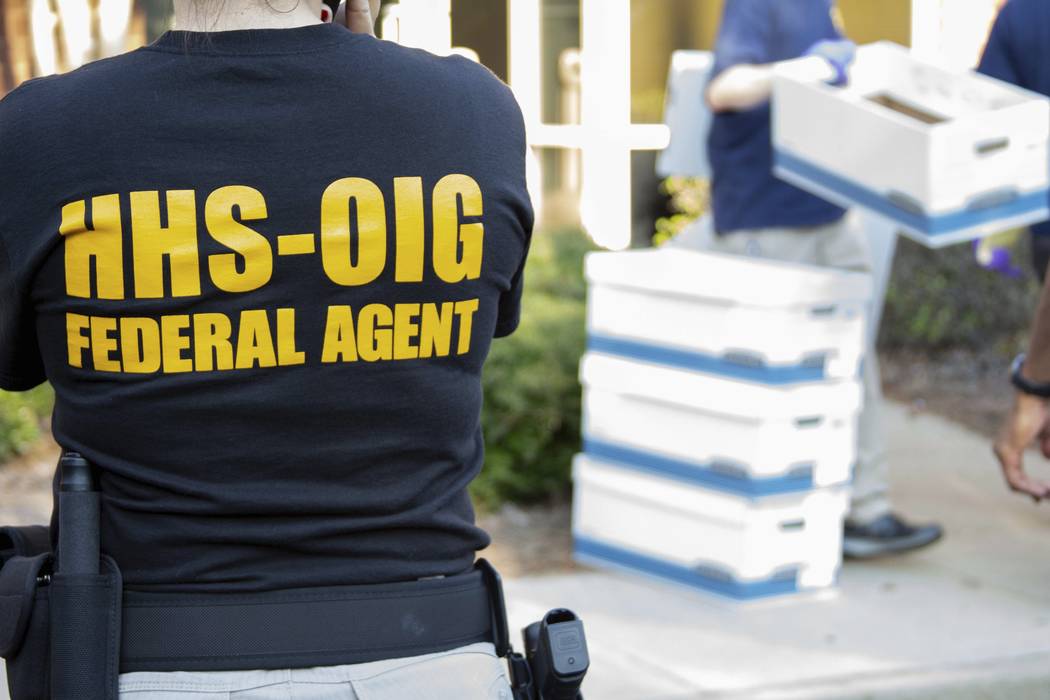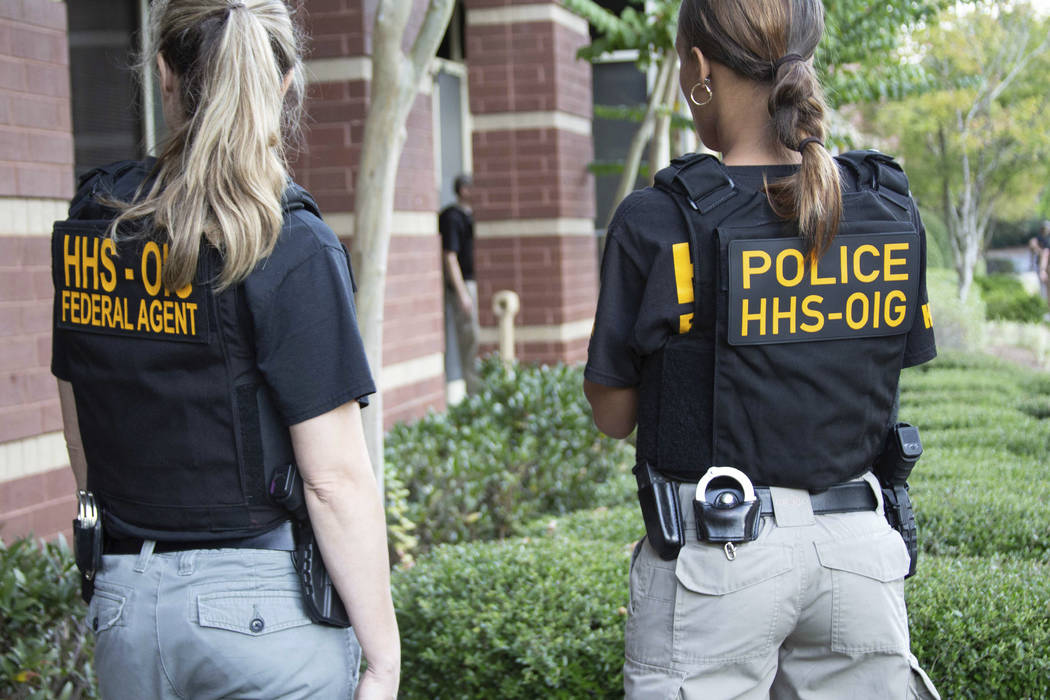Gene test fraud that peddled cheek swabs cracked by feds, 35 charged
WASHINGTON — Federal agents took down an alleged Medicare scam Friday that exploited seniors’ curiosity about genetic medicine by enticing them to get their cheeks swabbed for unneeded DNA tests. Medicare was billed $2.1 billion.
Dubbed “Operation Double Helix,” the crackdown targeted telemedicine companies, doctors and labs, in a joint effort by the Justice Department , the FBI, U.S. attorneys’ offices, and the Health and Human Services inspector general. Thirty-five people were charged around the country.
The alleged fraud flourished at a time when many people are getting DNA tests to trace back their family heritage.
Fraudsters preyed on people’s fears of harboring genetic markers for cancer. However, genetic testing is not routinely used to screen for cancer.
“A decade ago, it would have given Medicare beneficiaries pause if someone wanted to get a swab from their cheek of their saliva,” said Shimon Richmond, who heads the inspector general’s investigative division . “Today people know and recognize what (genetic testing) is, and they think ‘I can get that done, and I can get it done for free and find out if I have health issues that I need to address.’ ”
Bad decision
It’s a bad decision, said Richmond. Not only does it put the patient’s Medicare ID in the hands of fraudsters who can then keep reselling it for illicit purposes, but it can potentially compromise unique details of an individual’s make-up.
Another downside: Medicare might deny future coverage for genetic testing when it’s really needed, since the patient’s record would show such an analysis was already done. Patients should only have genetic testing if their own doctor orders it, officials said.
The alleged scheme worked like this: Officials said a telemarketing or in-person “recruiter” would convince a Medicare enrollee to take a genetic test, assuring them that the program would pay the full cost. The patient would provide their Medicare information. A doctor in league with the fraudsters would approve the test, and collect a kickback from the recruiter company. A lab participating in the scheme would run the test, bill Medicare, and share payments collected from the government with the recruiter.
Bills to Medicare connected with the scam typically ranged from $7,000 to $12,000, Richmond said, with some much higher. In many cases the patient never got a report back, or the results provided were incomprehensible. Medicare paid out hundreds of millions of dollars before authorities detected the fraud and moved in.
No single organization
There was no single organization behind the fraud. Friday’s operation targeted defendants in Florida, Georgia, Louisiana, and Texas, the Justice Department said. Nine doctors were among those charged. Others included owners of telemedicine companies and testing labs.
Medicare enrollee Linda Morris of Parker City, Indiana, said she was roped in at a conference on aging well. The retired high school math and journalism teacher got her cheek swabbed by one of the many health vendors at the event.
“Their ploy was, ‘Get a mouth swab and we can analyze how well your system synthesizes the drugs you are taking,’” she said. “It never crossed my mind there was anything wrong with this.”
Then her Medicare statements started coming in, showing charges as high as $33,000. The program paid almost $10,000.
Morris said she was never billed, and was never sent results. When she looked up the address for the test vendor it was “a house on a back road.”
“I feel stupid, and in the meantime, I’m furious,” Morris said. Health fairs, church events, and senior centers are like magnets for the fraudsters, officials said.
Cancer survivor got suspicious
Dennie Krivokapich of Farmington, New Mexico, said he almost sent in his cheek swab following a telemarketing pitch. The retired accountant is a three-time cancer survivor and concerned about his future risk. The company sent him a kit, but the paperwork that came with it made him suspicious.
“The physician who requested it was not my physician,” said Krivokapich. The marketing company kept calling him, until he blocked the number.
Government-backed anti-fraud organizations known as the Senior Medicare Patrol have been trying to spread the word about genetic testing scams. Retired federal investigator Jennifer Trussell, a consultant to the groups, said fear of cancer is the scam artists’ most effective tool. “These are bad actors trying to take advantage of good medicine,” she said.
Fraud against government health care programs is a pervasive problem that costs taxpayers tens of billions of dollars a year. The true extent is unknown.
Experts say part of the problem is that Medicare is required to pay medical bills promptly, which means money often goes out before potential frauds get flagged. Investigators call that “pay and chase.”
In recent years, Medicare has tried to adapt techniques used by credit card companies to head off fraud. Law enforcement coordination has grown, with strike forces of federal prosecutors and agents, along with state counterparts, specializing in health care investigations.




















